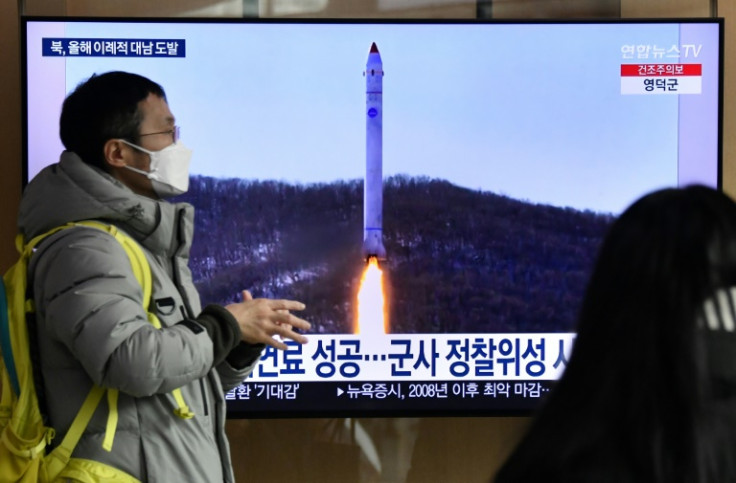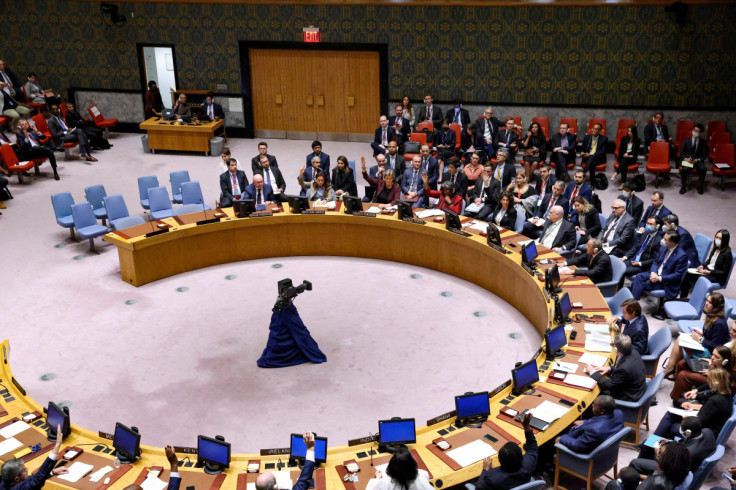China, Russia Blame US For North Korea's Brazen 'Illegal' Nuclear Missile Programs

KEY POINTS
- China and Russia blamed U.S.'s military activities for heightening tensions with North Korea
- China and Russia's U.N. deputy ambassadors called for U.S.-North Korea dialogues
- The U.S. ambassador to the U.N. said the country has no "hostile intent" against North Korea
China and Russia, North Korea's allies, are accusing the U.S. of heightening tensions with Pyongyang, which led to dozens of ballistic missile launches and the expansion of its nuclear weapons program.
In a meeting of the 15-member U.N. Security Council on Monday, Chinese deputy U.N. ambassador Geng Shuang and Russian deputy U.N. ambassador Anna Evstigneeva pointed to the U.S.'s military activities with South Korea for causing North Korea to respond with more nuclear weapon tests.
China and Russia argued that the Security Council should consider their resolution proposed in November 2021, which aimed to lift sanctions and promote dialogues between the U.S. and North Korea to further prevent Pyongyang from expanding its nuclear program, according to the Associated Press.
North Korea's two important allies added that the resolution would create conditions for a political and diplomatic settlement to end the long-standing conflict in the Korean peninsula.
However, the U.S. defended its military cooperation with South Korea.
"These exercises are long standing, they are routine. They are purely defensive in nature... The United States harbors no hostile intent toward the DPRK," U.S. Ambassador to the U.N. Linda Thomas-Greenfield said, Reuters reported.
Thomas-Greenfield insisted that the U.S. is open to a dialogue with North Korea while blaming China and Russia for not encouraging its Korean ally to stop its nuclear weapon tests.
The U.S. ambassador also chided China and Russia's North Korea resolution, arguing that it would not hold Pyongyang accountable for violating the U.N. Security Council's resolutions prohibiting missile and nuclear tests.
U.K.'s deputy U.N. Ambassador James Kariuki has also raised concerns about Pyongyang's nuclear ambitions while downplaying Russia and China's uneasiness about AUKUS, a security pact with Australia and the U.S.
"North Korea's illegal nuclear and ballistic missile programs violate multiple Council resolutions. So there's simply no comparison to the AUKUS," Kariuki said.
A Security Council meeting was called after North Korea claimed it launched Hwasong-17 on Thursday, its largest intercontinental ballistic missile, during a military drill to flex its progress in developing nuclear weapons.
Miroslav Jenca, the U.N. assistant secretary-general for Europe, Central Asia and the Americas, said the meeting aimed to discuss practical measures to prevent North Korea from further developing nuclear and ballistic missiles.
Jenca also echoed the concerns of U.N. Secretary-General Antonio Guterres that the divisions prevented the international community from acting on the issue of North Korea.
A presidential statement from the Security Council condemning North Korea is highly unlikely, given that China and Russia have already expressed reservations about it.
A presidential statement requires the consent of all 15 Security Council members.

© Copyright IBTimes 2025. All rights reserved.






















